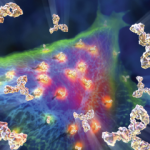A study recently published in Arthritis & Rheumatism concluded that anti–peptidyl arginine deiminase type 4 (PAD-4) antibodies are highly specific markers of RA and appear to be useful markers of disease severity.1 The project studied an important and previously unrecognized immune response in RA—anti–PAD-4, which is one of the major proteins that creates other common autoantigens in RA.
Among the researchers on the project was Antony Rosen, MD, a recent recipient of the ACR Research and Education Foundation (REF) Within Our Reach: Finding a Cure for Rheumatoid Arthritis RA Research Grant. Dr. Rosen and his team of researchers are working to define new blood tests to help rheumatologists diagnose RA in its early stages, which will improve their ability to monitor disease activity, predict outcome, and prevent early RA from amplifying.
In this project, the researchers analyzed blood samples from patients with established RA, patients with other rheumatic disease, and healthy adults to see when and if anti–PAD-4 autoantibodies formed. They also scored hand and foot joint erosions using the Sharp/van der Heijde method.
“Finding this very specific marker is exciting because it appears to identify patients who develop severe and erosive disease,” explains Dr. Rosen. “Understanding the role of this immune response in generating joint damage in RA may provide a new tool for prediction and also identify a previously unknown pathway that could be contributing to joint damage.”
The researchers also found that different forms of the PADI4 gene influence the immune response to the PAD-4 protein, potentially contributing to the way the disease evolves. The findings of this project may help to define and monitor a critical event occurring in early RA that causes the disease to amplify. By identifying the specific mechanisms during this critical event, researchers may be able to create a novel and specific approach to prevent early RA from progressing.
For information about other studies being funded through the REF’s Within Our Reach campaign, visit www.WithinOurReach.info.

